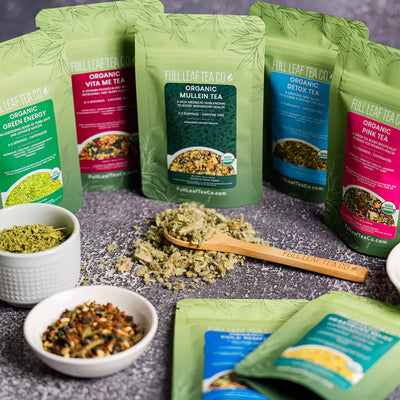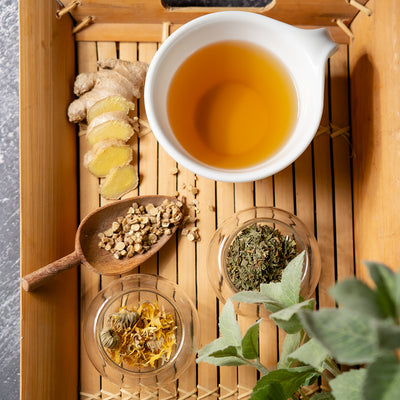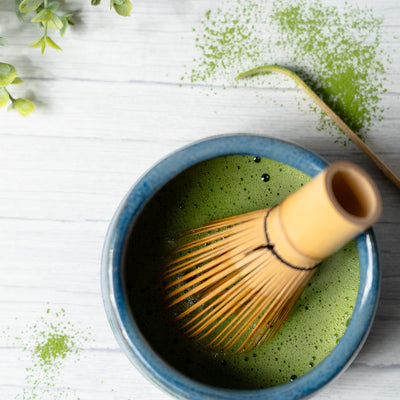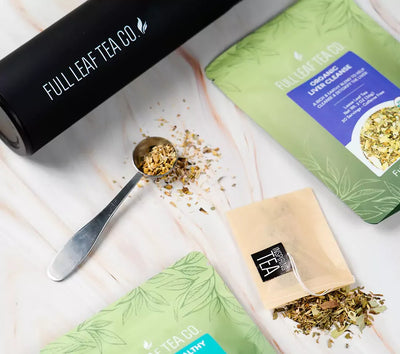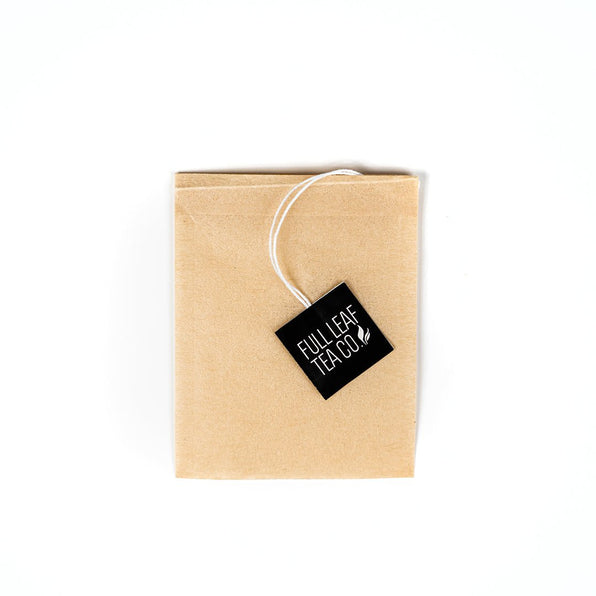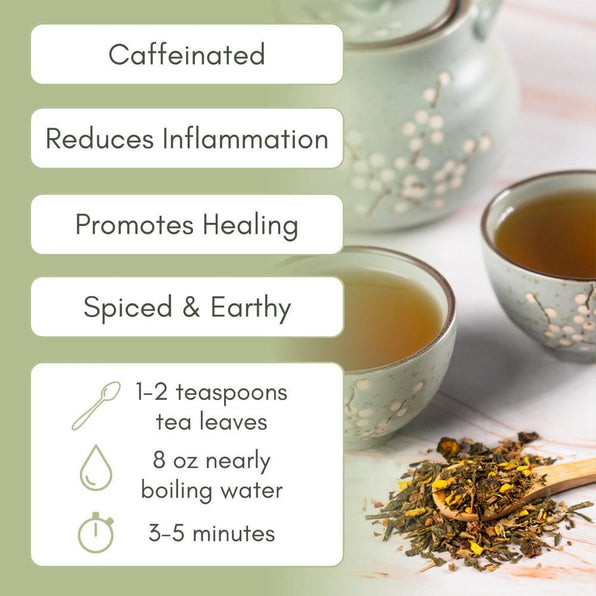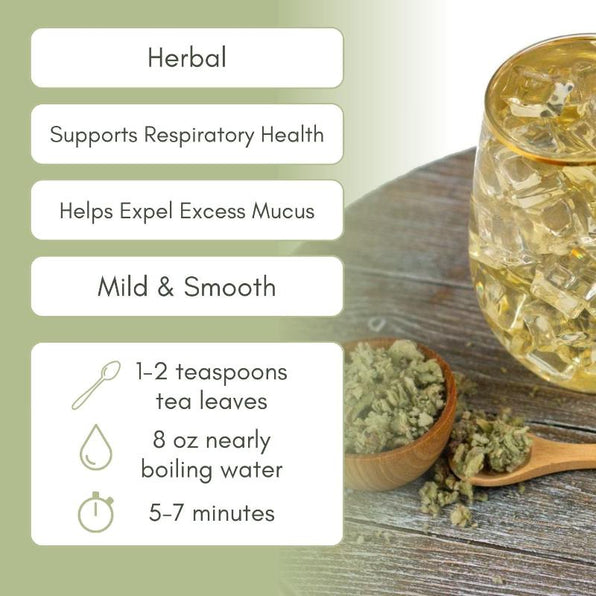In the world of herbal teas, few are as versatile and comforting as Mullein tea. This herbal infusion, brewed from the leaves and flowers of the Mullein plant (Verbascum thapsus), has been a beloved remedy for centuries. Known for its soothing properties and numerous potential health benefits, Mullein tea is a gentle yet powerful elixir that deserves a closer look. In this comprehensive guide, we'll delve into the wonders of this soothing tea, exploring its history, uses, and the science behind its potential health benefits.
A Glimpse into the History of Mullein Tea

Mullein, native to Europe and Asia, with a substantial amount of strands found in the Mediterranean and after being imported to the US, has a long history of use in traditional medicine. Native American tribes and ancient cultures in Europe were among the first to recognize the medicinal properties of Mullein. The ancient Greeks even used the plant to make torches! Over the centuries, Mullein has been used to treat a wide range of ailments, from respiratory issues to skin conditions.
The Mullein Plant - Nature's Pharmacy
Mullein (Verbascum thapsus) is a biennial plant characterized by its tall stem covered in soft, velvety hairs. Its distinctive yellow flowers bloom in summer, creating a striking visual display. The leaves and flowers of the mullein plant are the primary components used to prepare mullein tea.
The Science Behind Mullein Tea
While much of the evidence supporting the benefits of Mullein tea is anecdotal, some scientific studies have explored its potential uses. Research suggests that mullein contains compounds like saponins, flavonoids, and tannins, which contribute to its various medicinal properties. However, more clinical research is needed to fully understand the extent of its therapeutic effects.
Mullein Tea in Traditional Medicine
Mullein tea has a special place in traditional medicine practices around the world. It has been used for centuries by various cultures to address specific health concerns. Native American tribes often used mullein to soothe respiratory discomfort, while European herbalists turned to it as a remedy for earaches. These historical uses serve as a testament to the enduring value of mullein in the world of natural healing.
Modern Research and Mullein Tea
While traditional uses of mullein tea provide valuable insights, modern scientific research is shedding new light on its potential health benefits. Recent studies have explored its anti-inflammatory properties, suggesting that it may offer relief for conditions beyond respiratory health. Although more research is needed, these findings underscore the importance of continuing to explore the potential of mullein tea in contemporary healthcare.
Benefits of Drinking Mullein Tea
Respiratory Health
One of the most well-known uses of mullein tea is for respiratory health. Its natural soothing and expectorant properties make it an excellent choice for individuals dealing with coughs, colds, congestion and other respiratory issues. The science behind this lies in mullein's content of Saponins, which may help reduce inflammation and promote the loosening of mucus.
Ear Health
Mullein oil, often derived from the plant's flowers, has been used historically to address earaches and infections. While mullein tea may not be directly applied to the ears, its potential anti-inflammatory properties could offer relief to ear discomfort when consumed orally. However, always consult a healthcare professional for ear-related concerns.
Soothing Digestive Aid
Mullein tea is also praised for its potential to soothe digestive issues. Its mild anti-inflammatory properties may help ease stomach discomfort, bloating, and indigestion. Additionally, some herbalists suggest that mullein tea may have a calming effect on the digestive tract.

Considerations to To Take Before Consuming Your Mullein Tea-
Before incorporating Mullein tea into your wellness routine, it's essential to be aware of a few precautions:
- If you have known allergies to plants in the Scrophulariaceae family, such as figwort or snapdragon, you may also be allergic to mullein.
- Before ingesting new substances, always consult with a healthcare professional, especially if you are pregnant, nursing, or taking medications.
- Enjoy the natural goodness of this herbal treasure responsibly!
Mullein Tea Varieties and Blends
Many tea enthusiasts enjoy experimenting with different combinations to create unique and personalized blends. Some popular options include adding a touch of honey or sugar for sweetness or mixing Mullein with other herbs like our Organic Chamomile or Organic Peppermint for added relaxation. However due to mullein’s mild taste, it's complimentary to any tea it is added to for the alternative benefits!

Finding High-Quality Mullein Tea
Mullein tea, with its rich history, diverse uses, and potential health benefits, stands as a testament to the enduring power of natural remedies. Whether you're seeking respiratory relief, digestive comfort, or a soothing cup of herbal goodness, mullein tea has something to offer. As you embark on your mullein tea journey, remember to consult with healthcare professionals for personalized advice and enjoy the natural wonders of this herbal elixir responsibly. Embrace the age-old tradition of mullein tea and discover the soothing, healing powers it holds.
Preparing and Making Mullein Tea
Here are the steps to making your own cup of Mullein Tea!
Step 1. Boil water, either in a pot or kettle.
Step 2. Prepare the tea by placing 1-2 teaspoons of Organic Mullein Tea into a Natural Paper Drawstring Tea Bag.
Step 3. Steep (Let sit) tea bag or diffuser in boiling water for 5-7 minutes.
Step 4. Enjoy your freshly brewed cup of mullein Tea!
(Depending on if you like sweet or bitter, you can put sweeteners or honey into your tea to give it just the right amount of sweetness!)

